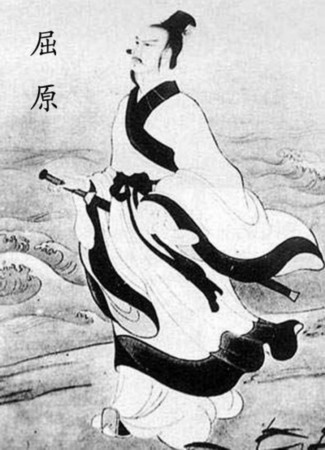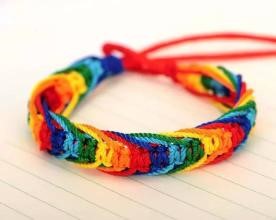Chinese Dragon Boat Festival
Introduction

The Dragon Boat Festival was selected into the first batch of the National Intangible Cultural Heritage items on May 20th, 2006. On October 30th, 2009, it was added to the UNESCO World Intangible Cultural Heritage Lists.
Fast Facts about Dragon Boat Festival
| Chinese Name: | 端午节 |
|---|---|
| Alternative Names: | Double Fifth Festival, Poets' Day |
| Date: | May 5th (Chinese Lunar Calendar) |
| Festival Type: | Traditional Chinese Festival |
| Countries/Areas to Celebrate: | China, Vietnam, South Korea, Japan, North Korea |
| Traditions and Customs: | eating Zongzi (glutinous rice wrapped in bamboo leaves and stuffed with different fillings), racing dragon boats, drinking realgar wine, wearing perfumed medicine bags, tie five color thread on wrist for kids, hanging mugwort and calamus |
| Significance: | to commemorates the death of Qu Yuan (340–278 BC) - the poet and minister in Chu kindom |
| Charm Bracelet for the Festival | Hand-made Five Color Thread Bracelet with Zongzi, Five Color Thread, Perfumed Medicine Bags |
Date and Holiday Durations
The Dragon Boat Festival falls on the fifth day of the fifth month on the Chinese lunar calendar. The Chinese people will have one day off to celebrate the festival. As it is usually combined with the neighboring weekend, people will have three days off for the holiday. The following chart shows the exact dates for the festival from 2025 to 2027 and holiday durations:
| Year | Date of Dragon Boat | Holiday Durations |
|---|---|---|
| 2025 | May 31 | May 31 - June 2 |
| 2026 | June 19th | June 19th - 21st |
| 2027 | June 9th | May 30 - June 1 |
Origin and History

There are many kinds of legends about the origin of Dragon Boat Festival. Among all of them, the most popular one is about Qu Yuan.
Qu Yuan is a minister in the Chu kingdom - one of the seven warring states before Qin (221BC - 206BC). He offered many good suggestions to the king such as the alliance with the Qi Kindom to defend Qin. While his good advices were opposed greatly by other court officials, thus was exiled by the king after their slanderous talk about him. During his exile time, he composed many poems to express his concern about his country and people. In 278BC, after knowing his country was taken by Qin, he drowned himself in Miluo River.
After Qu Yuan died, the people of Chu tried to search him in the river. While searching, some fishermen threw cooked rice balls and eggs into the river thinking it would prevent fishes from eating Qu Yuan’s body. Later the rice balls were replaced by the present Zongzi (glutinous rice wrapped in bamboo leaves). An old doctor poured a pot of realgar wine into the river in order to prevent the monsters in the river to hurt Qu Yuan’s body. So, every year on the day that Qu Yuan died (May 5th of the Chinese Lunar Calendar), people will commemorate him with the traditions of eating Zongzi, drinking the realgar wine and boat racing.
Traditions and Customs

As the most popular food for the Dragon Boat Festival, Zongzi (glutinous rice wrapped in bamboo leaves and stuffed with different fillings) is filled with different fillings for the people in the northern and southern China. In the north, it is mostly filled with the date, while in south with bean - paste, meat, egg yolk or ham. The Zongzi made in Jiaxing of Zhejiang is the most famous one in China. → Top Nine Traditional Delicacies for Dragon Boat Festival
During the festival, people usually hang mugwort and calamus around the doors of their homes, wear perfumed medicine bags, wear the “five color thread” on their neck, wrists or ankles, drink realgar wine, and display portraits of evil's nemesis, Chung Kuei as a way to prevent disease and evil.



More Traditional Chinese Festivals:
Chinese Spring Festival Laba Festival Lantern Festival Dragon Heads-raising Day Qingming Festival Ghost Festival The Double Ninth Festival Mid-Autumn Festival Double Seventh Festival Winter Solstice
Chinese Calendar
| Su | Mo | Tu | We | Th | Fr | Sa |
|---|---|---|---|---|---|---|
| 29初五/5 | 30初六/6 | 1初七/7 | 2初八/8 | 3初九/9 | 4初十/10 | 5十壹/11 |
| 6十二/12 | 7十三/13 | 8十四/14 | 9十五/15 | 10十六/16 | 11十七/17 | 12十八/18 |
| 13十九/19 | 14二十/20 | 15廿壹/21 | 16廿二/22 | 17廿三/23 | 18廿四/24 | 19廿五/25 |
| 20廿六/26 | 21廿七/27 | 22廿八/28 | 23廿九/29 | 24三十/30 | 六月 (Jun) 25初壹/1 | 26初二/2 |
| 27初三/3 | 28初四/4 | 29初五/5 | 30初六/6 | 31初七/7 | 1初八/8 | 2初九/9 |
{{week}}. {{month}} {{day}}, {{year}}
Lunar Date
{{lmonth}} {{lday}}, {{syear}} ({{zodiac}}) Year ({{lyear}}){{sday}} Day, {{smonth}} Month
Clash {{clash}} | Evil {{evil}}
Auspicious
-
{{#luckly}}
- {{.}} {{/luckly}}
Inauspicious
-
{{#unluckly}}
- {{.}} {{/unluckly}}
Auspicious Times
-
{{#luckyTime}}
- {{.}} {{/luckyTime}}
